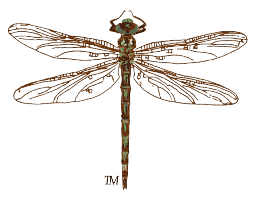Naturalists at Summer Camp
Coyote Kids Nature Camp
Coyote Kids nature camping at Dripping Springs Ranch Park
Tina Adkins
One of the Master Naturalists’ missions is to provide educational programming for youth within Hays County. We inspire children of all ages to appreciate our natural environment, to increase habitat for wildlife, preserve the health of our streams and aquifers, understand geology, and protect our night skies from light pollution—all fundamental goals of the Texas Master Naturalist™ mission.
Summer time is perfect for kids who want a change of scenery and are just itching to get outdoors after the school year ends. A wide variety of camps is typically available, but the outstanding choice is the flip side of a stationary classroom. The great outdoors is a perfect match for Master Naturalists to connect with and inspire future generations. Several options for children to explore the world around them include Blue Hole Nature Camp, the libraries in Wimberley and Dripping Springs, and Coyote Kids Nature Camp.
The City of Wimberley and Dripping Springs Parks and Recreation Departments have developed these summer programs and partner with Hays County Master Naturalist and other related organizations. The two nature camps host 10-week programs highlighting new nature themes each week. This summer our chapter was able to participate in four different presentations: Birds, Galls, Pollinators, and Dark Sky Discovery.
Beth Barham volunteered to lead a class on June 20, beginning with an explanation of what birds need to survive, such as shelter, food, water, and of course space in a preferred habitat. The activity then continued with some displays on bird beak adaptations, such as size and shape and how these characteristics relate to their choice of foods, along with demonstrations of how they “eat like a bird.”
Dick Barham provided instructions on how to focus and use binoculars effectively in order to get a closer view of birds in their habitat. Sarah Teale and Cynthia Pryor, who both have a background in education, assisted in this session to give the campers a different perspective on wildlife.
The next two sessions were conducted by Minding the Hill Country, an education project initiated by Dr. Kristy Daniel at Texas State University in San Marcos. A team of graduate students from TSU, including Jill Zipperer and Brady Pringle, designed and taught both sessions. The graduates led the first activity on June 21 called Pollination Partners, which fit in well with Flying Friends week. Their second activity was Good Gall-y, one of Dr. Daniel’s favorite topics. It covered both Gall Wasps and Oak Galls and was held on June 28 during Totally Texan camp week. A scavenger-hunt-esque activity allowed the students to explore the area, searching for different types of galls.
Dark Sky Discovery week included the August 9 session designed by Cindy L. Cassidy, President of the Board for Hays County Friends of the Night Sky and President of DarkSky Texas. This class was split into three different rotations with four age-based groups called “Coyote Packs.” Two activities primarily focused on the upcoming Annular Eclipse (October 14, 2023) and next spring’s Total Solar Eclipse (April 8, 2024).
While Janet Holland led the older pack in assembling styrofoam balls on dowels to simulate the moon, the 3 younger packs were given handouts to help explain eclipses. An eclipse occurs when the earth, sun, and moon are all in alignment together, with the moon orbiting in between as if it is the “grilled cheese” in a sandwich. The older pack then led a discussion of this process while demonstrating the moon’s shadow sweeping over the earth’s surface. The campers’ heads modeled the earth, the styrofoam balls simulated the moon, and a bright light acted as the sun. Sarah Teale and Tina Adkins guided Pack 1, Michelle Fischer and Nick Williamson guided Pack 2, and Bob Adkins guided Pack 3 during each rotation.
Another rotation was held outdoors and each camper was given ISO-certified eclipse glasses to practice using them in
order to observe the sun safely during an eclipse. Cindy Cassidy then discussed light pollution by using her “Little House
Demo” for the 3rd rotation.
All the Coyote Packs, totaling around 50 campers per session, appeared to be very engaged and excited about all four themes that were presented. Many of the students asked lots of great questions about the different topics and were very interested in expressing their knowledge of the subjects. Overall, the Packs their expressed their enjoyment of the varied activities and seemed to retain much of the information. Camp staff were very helpful in assisting and guiding each Pack during all the rotations, sporadically relating their own experience to the activities.
Jill Zipperer rounded out the camp experience exclaiming, “We had a fantastic time and would love to work with this camp again!”
It is essential that students have the opportunity to explore the relationships among soil, rivers, sky, plants, trees, and animals, including themselves, and how each individual organism influences another. The Texas Hill Country is a unique ecosystem, providing a broad spectrum of fields to study and enhance learning for all ages. Master Naturalists enjoy contributing their knowledge and experience to all Hays County youth. Thanks for the opportunity to inspire your kids!





